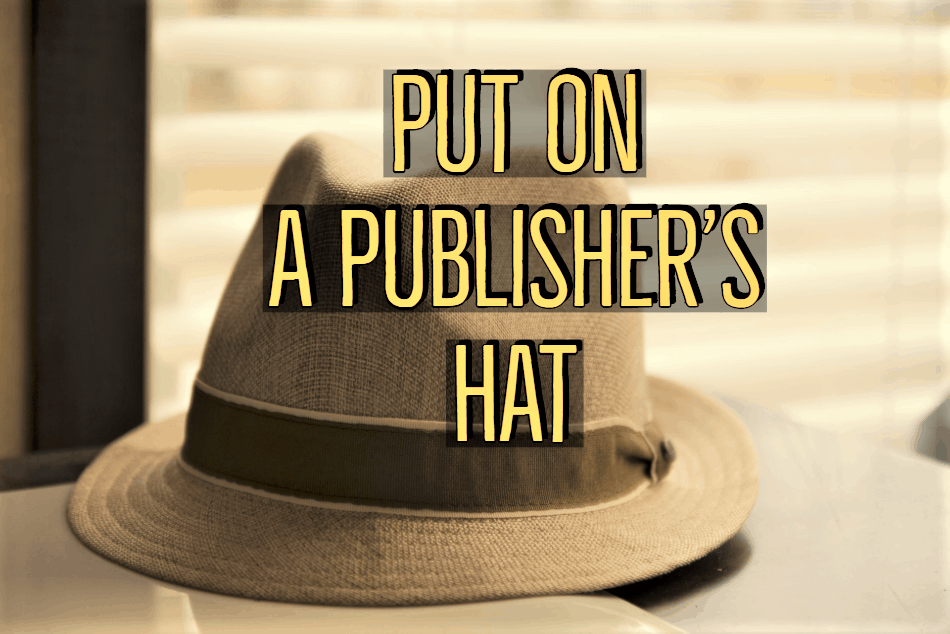Writers often have misconceptions about what book publishers want. Fearing or facing rejection, they may denounce the major New York City publishers as out of touch or ignorant.
But book publishing professionals know what’s what, despite statements to the contrary. It’s not that large commercial publishers are against good books, as an unpublished writer might grouse. Corporate businesspeople in Manhattan towers love good books—especially those that make profits. They also like less-good books—if they too make a profit. Rent is high.
Any business involved in the creative arts is bound to be quirky and unpredictable. Makers of Tide detergent offer the same product year in, year out. Book publishers also sell continuously, but every month they market and sell an entirely new line of products. These include books of every variety, requiring targeted marketing.
That publishers cannot really know or guarantee what will be a bestseller makes the enterprise frustrating for all involved—especially authors trying to figure out the system. One thing writers can be relatively confident in: the big publishers think less about artistic aspirations and more about what is working in today’s marketplace.
Literary awards are great, making excellent additions to sales copy.
I get you
You long for a big publisher to get you, to understand your unique talent and story. Instead, if you are determined to be a career author, you should get the publishers: study what books they publish successfully and think about what makes those titles work.
If you want to sell a book to today’s readers, understand what appeals to them. You might be more successful taking pointers from Louise Penny than from Agatha Christie. Read the latest bestsellers in your area of interest. Can your book do that?
Certainly, a publisher expects a career author to deliver to them an exceptional book to sell.
Writers are still artists, and you can’t fake that.
Modern editors
Imagine an editor at a publishing house fixing your novel after giving you a healthy advance. Their door is closed, and they take a break from editing your book to gaze at afternoon traffic outside their office window. Nuh-uh. No time for editing in their 9-to-5. Weekdays are packed full: sales meetings, cover conferences, meetings with the Subsidiary Rights department, calls to literary agents, sales conference presentations to write. The list truly never ends. This may help explain why…
Editors at the major publishing houses rarely acquire a novel they feel is less than 90% there.
For a determined career author, getting it to that point may mean hiring a professional editor.
Like you, editors working at the big publishing houses love books. And be assured they do edit—at night and on weekends. Book editors also love their jobs. And a competitive office atmosphere makes them only as good as their last bestseller.
As part of their annual employee review, some book publishers even issue profit/loss statements of their editors’ performances: they made this much money/they spent this much money. You can bet editors do their best to produce bestsellers. To be published by a major publisher, you must be onboard with that mission.
Publishing trends
News found in trade magazines like Publishers Weekly and other online industry blogs might provide ideas for a career author’s new project. At Penguin Random House, Tom Colgan is launching a line of Westerns. Kensington has a new horror imprint.
You want your agent to know these things, of course, but it is also useful knowledge for you to understand what kinds of books publishers currently seek.
Get good at writing sales copy
No self-respecting, introverted writer and dreamer of dreams while alone at their desk wants to devote time to thinking about the difference between cover copy and market copy. Do it anyway. One is written to attract book-buying readers; one is written to appeal to booksellers. Think about the target reader of both and what they are looking for: there’s a difference.
When querying an agent or editor, consider that difference. It’s not just that your book is great—it better be—but that it’s on point in today’s market for the reasons you offer.
You may pen a beautiful novel, but if editors and agents see no way for it to grab attention in a competitive marketplace, it’s DOA. Instead, might your novel be described as Ruth Ware meets Where the Crawdads Sing? (That sounds pretty darn good.)
What are your competitive titles? If you contend that your book doesn’t match any bestselling trends, you might consider self-publishing.
Unique selling proposition
Do you have an elevator pitch? Can you use it when soliciting blurbs from other writers, or spreading the word on social media? What about your book might attract notice from an influencer on Instagram?
All this will sound mercenary and craven to some. Still, a successful career author does well to anticipate what ammunition agents and editors could use to sell their book. That means researching competitive titles, sales trends and possible marketing platforms.
That’s not your job—that’s their job?
That is correct. Unfortunately, that doesn’t matter, and you should do it anyway so your book has the best shot at commercial success.
What makes your book commercial? Share with us on Facebook.





